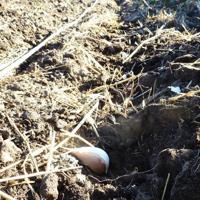In these uncertain times brought on by the coronavirus pandemic, buying a share in a Community Supported Agriculture, or CSA, farm makes more sense than ever. The Land Stewardship Project’s 2020 edition of the Twin Cities, Minnesota and Western Wisconsin Community Supported Agriculture Directory – available online at landstewardshipproject.org/stewardshipfood/csa — lists more than 40 farms that supply vegetables, as well as meat and other products, to shareholders.
By joining a CSA operation, consumers can be assured of receiving regular portions of fresh, nutritious food throughout the growing season while supporting local farmers in the community. CSA members pay a pre-season fee and, in return, farms provide food through a variety of delivery and pick-up options. Several farms offer flexible payment options and opportunities to get involved through harvest days and other activities. LSP’s directory not only provides farm descriptions and contact information, but also advice on choosing the right CSA operation for you.
Over the past three decades, the Minnesota-Wisconsin region has become a hot spot for CSA farms, which are a key part of the overall local and regional food economy. The Congressional Research Service estimated that U.S. local food sales totaled $11.8 billion in 2017, with nearly 8% of farms and ranches participating.
The coronavirus outbreak could cost local and regional food systems $1.3 billion in lost sales from March to May 2020, according to a recently published study by researchers at Colorado State University and the University of Missouri. Agriculture businesses that market through farmers’ markets, farm stands, K-12 schools, universities and restaurants are all severely impacted by the outbreak. According to the study, the vast majority of farms involved in local and regional food systems are small and often operated by beginning farmers.
Over the years, a growing number of consumers in the area have learned that joining a CSA farm not only gives them access to fresh, sustainably produced food, but also helps support a key part of the local agricultural economy. Signing up for a share now can ensure access to healthy food while ensuring these types of operations weather this storm and remain a vital part of the local food scene.











More Stories
Farm managers detained after a rope trap on a fence killed a leopard
Drought picture is getting grimmer for California agriculture, Farm Bureau reports
Cultivating a Crop West Branch Students Explore Agriculture